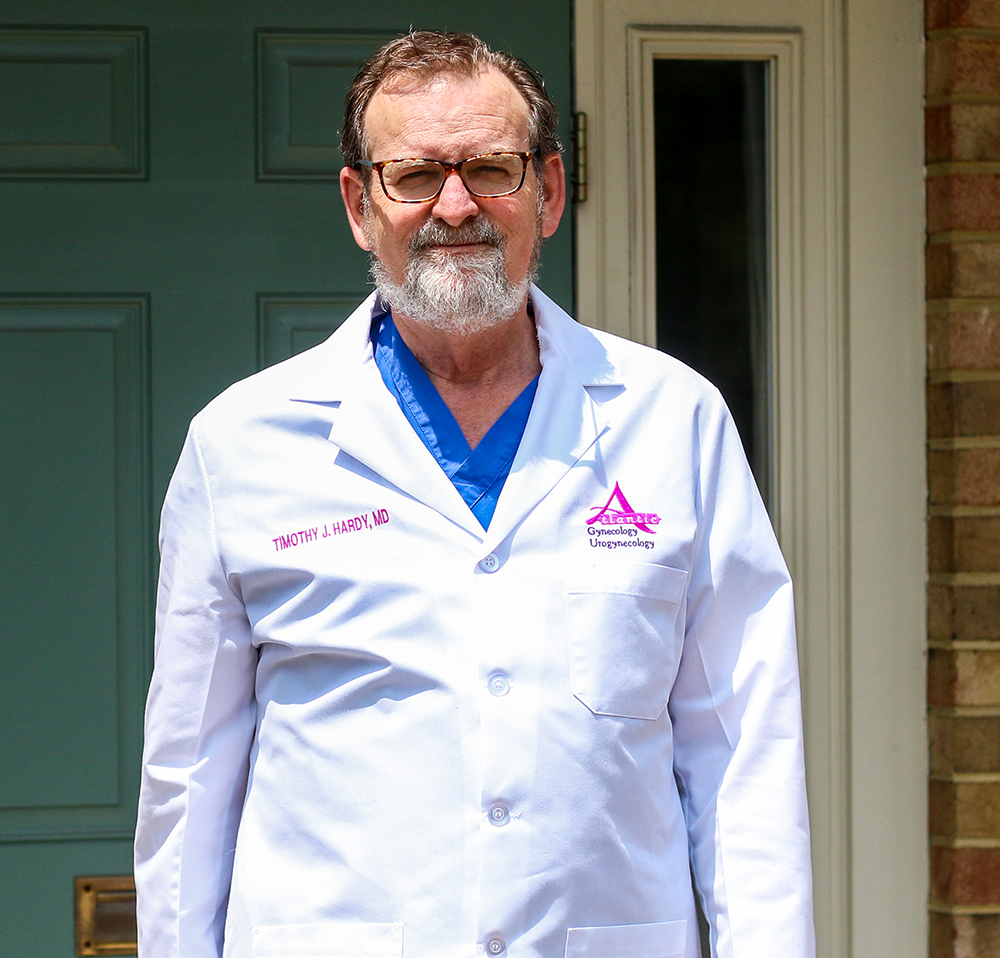What is a Cystoscopy?
A cystoscopy is a procedure that can either be performed in the office or as part of another surgical procedure. This allows Dr. Hardy to look inside the lower urinary tract and collect a urine sample from the bladder. This procedure uses a cystoscope which is an optic instrument with lenses and a light on its tip.
Why would I need this procedure?
There are several reasons that Dr. Hardy would like to perform this procedure and they are:
- Blood in the urine (hematuria)
- Inability to control urination (incontinence)
- Urinary tract infections
- Congenital abnormalities of the urinary tract
- Tumors of the bladder
- Bladder or kidney stones
- Tightening of the urethra or the ureters
- Checking to make sure no damage was done to the bladder or ureters after performing abdominal surgery

What can I expect during the procedure?
If performed in the office, the patient should empty her bladder before the procedure so that the urine remaining in the bladder can be measured. Otherwise, the procedure will be performed at the end of a prior surgical procedure.
A local anesthetic is usually administered to the urethra. The cystoscope is lubricated and inserted through the urethra into the bladder. Samples may be taken. Fluid may be pumped through the cystoscope to inflate the bladder, which allows Dr. Hardy to see the entire bladder wall. The cystoscope is removed and the procedure should only take about 20 to 30 minutes.
You may notice a small amount of blood in your urine following the exam; this should last no more than 24 hours. You will be given a medication that will numb the urethra and take away any burning you may experience. This medication will also cause your urine to turn orange. You will be given an antibiotic to prevent a urinary tract infection from occurring. No special diet is required. You should avoid vigorous exercise for 2 weeks after the procedure. You may resume sexual relations after you have come to the office for your follow up appointment.
What complications could occur?
Some possible complications that may occur are:
- Excessive bleeding
- Damage to the urethra
- Perforation of the bladder
- Urinary tract infection
When should I call the office?
You should call the office if:
- You experience pain, swelling, redness, drainage or bleeding from the urethra
- You develop signs of infection, including headache, muscle aches, dizziness or a general ill feeling and fever
- You experience nausea and vomiting
- You have painful or difficult urination
- Your urine turns a bright or dark red color
- New, unexplained symptoms develop. Drugs used in treatment may produce side effects.

